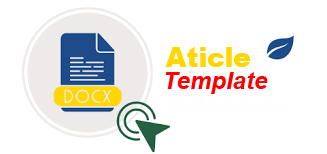Analysis of Student Performance Based on LMS Activities with Learning Analytics Approach
DOI:
https://doi.org/10.30865/jurikom.v8i6.3721Keywords:
LMS, Learning Analytics, Student Performance, Naïve Bayes, ClassificationAbstract
Good performance for a student during a course is important because it can affect the student's final index. However, in general, student performance can only be seen at the end of the semester, so if a student has a poor performance before the course ends, they do not get enough opportunity to improve. Therefore, it is necessary to have an early analysis of students who have poor performance in a course. Since most student learning activities in this pandemic era are currently on the LMS, the LMS activity log can reflect student performance. The main objective of this study is to classify the LMS activity log in a course using a probabilistic classifier algorithm. This study chose Naïve Bayes to classify student performance into three categories – good, satisfactory, and poor. The dataset is separated into two scenarios – the half-semester and the full-semester - in the Modeling and Database Implementation course at Telkom University. The results show that the Naïve Bayes Algorithm successfully predicts student performance early and provides information about students experiencing changes in performance with the highest accuracy of 93%. The practical implication of this study is that teachers can use the LMS activity log for early prediction of student success in passing a course. The learning analytics developed in this study prove that Naïve Bayes has a fairly good performance for small dataset sizes based on recall and accuracy to classify student performance. However, as the study focuses solely on a specific course and small dataset sizes, it lacks generalizability. Therefore, it needs to be tested for other courses and larger dataset sizes.References
S. Maitra, S. Madan, R. Kandwal, and P. Mahajan, “Mining authentic student feedback for faculty using Naïve Bayes classifier,†in International Conference on Computational Intelligence and Data Science, 2018, vol. 132, pp. 1171–1183. doi: 10.1016/j.procs.2018.05.032.
Y. B. Setyadi and S. Munawaroh, “PENINGKATAN MINAT BELAJAR MELALUI PENERAPAN STRATEGI TEAMS GAMES TOURNAMENT KOLABORASI DEBAT AKTIF DALAM PROSES PEMBELAJARAN PENDIDIKAN PANCASILA DAN KEWARGANEGARAAN,†in Seminar Nasional Kedua Pendidikan Berkemajuan dan Menggembirakan (The Second Progressive and Fun Education Seminar), 2017, pp. 439–446.
S. L. Kanuru and M. Priyaadharshini, “Lifelong Learning in higher education using Learning Analytics,†in 9th World Engineering Education Forum, 2019, vol. 172, pp. 848–852. doi: 10.1016/j.procs.2020.05.122.
A. Shettar, A. S. Nayak, and A. Shettar, “Assessing individual contribution in a team project using Learning Analytics,†in 9th World Engineering Education Forum, WEEF 2019, 2019, vol. 172, pp. 1001–1006. doi: 10.1016/j.procs.2020.05.147.
M. Nasiri, F. Vafaei, and B. Minaei, “Predicting GPA and Academic Dismissal in LMS Using Educational Data Mining: A Case Mining,†2012.
J. Jacob, K. Jha, P. Kotak, and S. Puthran, “Educational Data Mining Techniques and their Applications,†in 2015 International Conference on Green Computing and Internet of Things (ICGCloT) , 2015, pp. 1344–1348.
A. Zafra, C. Romero, and S. Ventura, “Multiple instance learning for classifying students in learning management systems,†Expert Systems with Applications 38, vol. 38, no. 12, pp. 15020–15031, Nov. 2011, doi: 10.1016/j.eswa.2011.05.044.
E. Fernandes, M. Holanda, M. Victorino, V. Borges, R. Carvalho, and G. van Erven, “Educational data mining: Predictive analysis of academic performance of public school students in the capital of Brazil,†Journal of Business Research, vol. 94, pp. 335–343, Jan. 2018, doi: 10.1016/j.jbusres.2018.02.012.
I. Dobre, “Learning Management Systems for Higher Education - An Overview of Available Options for Higher Education Organizations,†in The 6th International Conference Edu World 2014 “Education Facing Contemporary World , Nov. 2014, vol. 180, pp. 313–320. doi: 10.1016/j.sbspro.2015.02.122.
Meryansumayeka, M. D. Virgiawan, and S. Marlini, “PENGEMBANGAN KUIS INTERAKTIF BERBASIS E-LEARNING DENGAN MENGGUNAKAN APLIKASI WONDERSHARE QUIZ CREATOR PADA MATA KULIAH BELAJAR DAN PEMBELAJARAN MATEMATIKA,†Journal Pendidikan Matematika, vol. 12, no. 1, pp. 29–42, Jan. 2018, [Online]. Available: www.e-learning.unsri.ac.id
S. Fatmawati, “EFEKTIVITAS FORUM DISKUSI PADA E-LEARNING BERBASIS MOODLE UNTUK MENINGKATKAN PARTISIPASI BELAJAR,†REFLEKSI EDUKATIKA: Jurnal Ilmiah Kependidikan, vol. IX, no. 2, pp. 211–216, Jun. 2019, [Online]. Available: http://jurnal.umk.ac.id/index.php/RE








